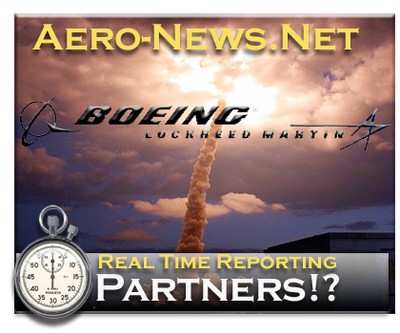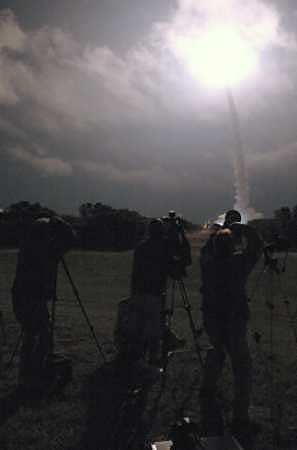Fri, Oct 21, 2005
Says Monopolistic Merger Limits Competition, Costs
Taxpayers
Citizens Against Government Waste (CAGW) Thursday urged the Air
Force against granting sole-source contracts for heavy satellite
launches to United Launch Alliance (ULA), a joint venture between
Boeing and Lockheed Martin. Regulators are expected to rule on the
merger shortly and the companies are now jointly negotiating for
the third round of launches under the $32 billion Evolved
Expendable Launch Vehicle (EELV) program, which will cover 23
missions lasting through 2011 and beyond. Despite the cost
overruns, schedule delays, and scandals that have plagued EELV,
there is no legal requirement for the Air Force to consider
additional bidders that may emerge before 2011.

"The structure slams the door on any possible competition," CAGW
President Tom Schatz said. "The ULA locks up all contracts,
ensuring high costs for taxpayers and stifling innovation."
The ULA will provide national security launch services for the
Department of Defense (DOD) and some NASA missions, but Boeing and
Lockheed Martin will continue competing for private launches. The
FTC and DOD have questioned the companies' claim that consolidation
will save $100 million to $150 million per year. The EELV program
was implemented in 1995 to give the federal government "assured
access" to space by keeping two domestic providers viable. The
first round of contracts was awarded to the same companies in 1998
with the expectation that a strong commercial launching market
emerge. However, the companies failed to adjust to market
conditions and the government has assumed an increasing share of
the risk and cost of the launching operations. If approved, the ULA
will benefit from $650 million in government subsidies for
infrastructure and about $100 million per launch.

"The Boeing tanker lease scandal showed that depending on a
small number of contractors ties the government's hands in cases of
corporate malfeasance. This consolidation leaves the government
with no alternatives if the companies waste tax dollars as they
have done in the past," Schatz continued.
A July 2005 report from the Government Accountability Office
referred to the DOD's space system acquisition efforts as "dismal."
EELV's unit cost has grown 81 percent. During the first round of
bidding seven years go, Boeing obtained proprietary information
from Lockheed Martin and the resulting investigation and suspension
cost taxpayers $230 million. The House version of the fiscal 2006
Defense Appropriations bill included language requiring future EELV
contracts to be negotiated on an annual basis because "multi-year
contracts are no longer in the interests of taxpayers."
"The Air Force is propping up failing ventures with lucrative
long-term contracts, forcing taxpayers to fund the EELV boondoggle
for years to come. To keep the US space launching industry
competitive, the Air Force should do whatever it can to open the
field to new competitors," Schatz concluded.
More News
Aero Linx: Aviators Code Initiative (ACI) Innovative tools advancing aviation safety and offering a vision of excellence for aviators. The ACI materials are for use by aviation pra>[...]
Make Sure You NEVER Miss A New Story From Aero-News Network Do you ever feel like you never see posts from a certain person or page on Facebook or Instagram? Here’s how you c>[...]
From 2016 (YouTube Edition): Who You Gonna Call When You Have a Rocket Engine that Needs a Spacecraft? While at EAA AirVenture 2016, ANN CEO and Editor-In-Chief, Jim Campbell, sat >[...]
"In my opinion, if this isn't an excessive fine, I don't know what is... The odds are good that we're gonna be seeking review in the United States Supreme Court. So we gotta muster>[...]
Expedite Used by ATC when prompt compliance is required to avoid the development of an imminent situation. Expedite climb/descent normally indicates to a pilot that the approximate>[...]
 ANN's Daily Aero-Linx (04.30.25)
ANN's Daily Aero-Linx (04.30.25) ANN FAQ: Turn On Post Notifications
ANN FAQ: Turn On Post Notifications Classic Aero-TV: Agile Aeros Jeff Greason--Disruptive Aerospace Innovations
Classic Aero-TV: Agile Aeros Jeff Greason--Disruptive Aerospace Innovations Aero-News: Quote of the Day (04.30.25)
Aero-News: Quote of the Day (04.30.25) ANN's Daily Aero-Term (04.30.25): Expedite
ANN's Daily Aero-Term (04.30.25): Expedite




